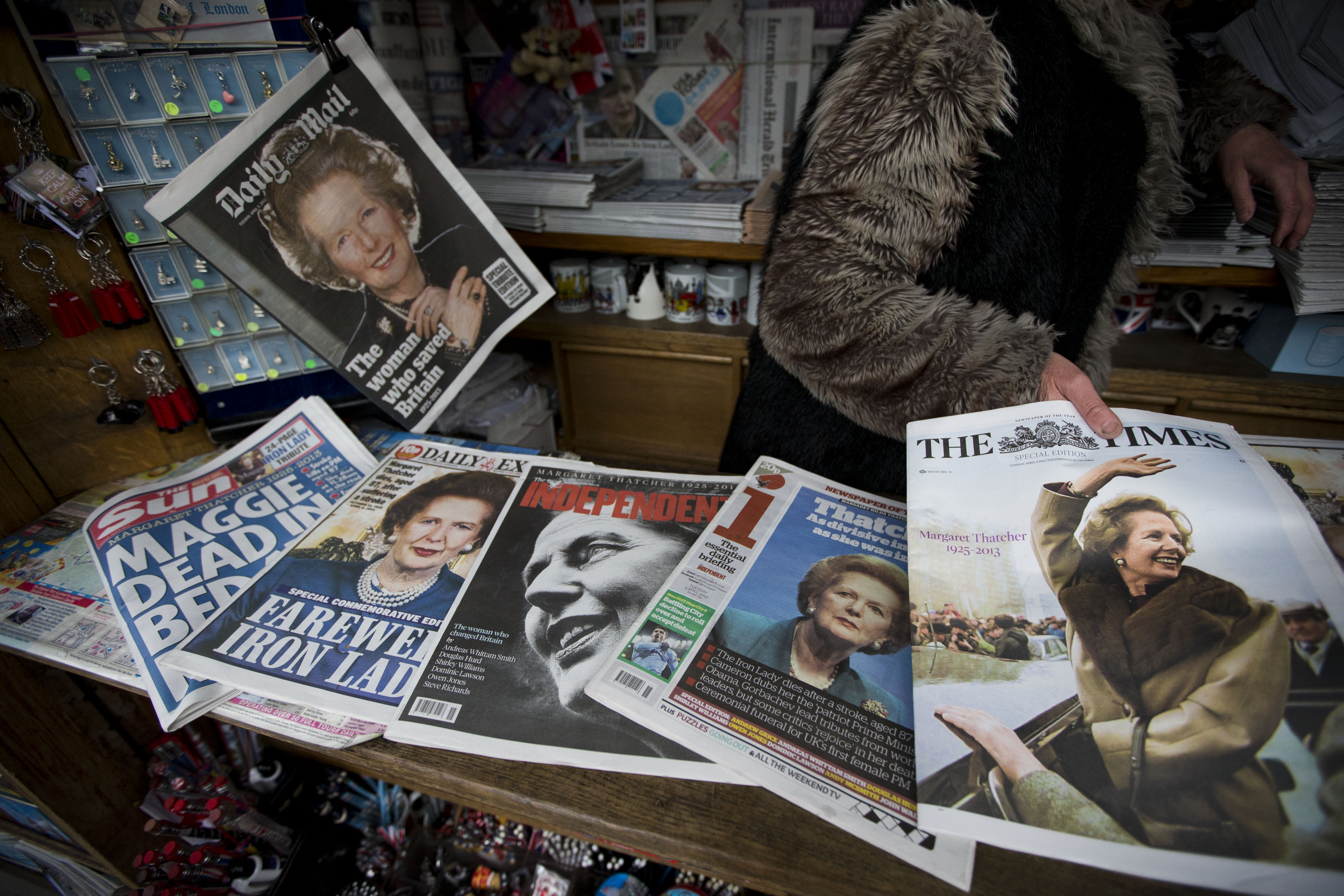Thatcher's legacy of liberty: History will validate that she improved millions of lives
Friday, January 1, 1904
In our modern age, when a famous person dies, the tendency is to overstate both their successes and their flaws.
When the recently deceased is possibly the most important woman of the past century, and one of the most influential women in the history of the world, the exalted celebrations and the malicious criticisms are magnified to the point that the person's actual achievements are lost. That's what happened when former British Prime Minister Margaret Thatcher died on Monday.
Certainly history overrates Thatcher's importance on an international level. During the 1980s the United Kingdom was a valuable strategic ally to America, but hardly a partner of equal standing or similar importance. The fall of the Soviet Union and the end of the Cold War were due much more to Ronald Reagan and Mikhail Gorbachev than the grocer's-daughter-turned-world-leader.
But Thatcher's importance to British domestic policy cannot be overstated. Piece by piece, Thatcher attempted to dismantle the socialist structure that suffocated the British economy. And she was extraordinarily successful in that effort.
By employing free-market, limited-government economic philosophies, Thatcher turned the stagnant British economy into the fourth largest in the world.
Thatcher slashed the top income tax rate from 83 percent to 40 percent, stimulating investment, fostering entrepreneurship, creating countless jobs and increasing the standard of living for people of all walks of life across the United Kingdom.
An astute student of economics, Thatcher understood that the U.K.'s massive number and breadth of state-run businesses lacked the incentive to succeed in the marketplace. As a result, British taxpayers were subsidizing industries that, by all accounts, should have been self-sufficient and thriving.
Shortly after she was elected as prime minister, she set off on an effort to privatize as many state-run industries as possible. After decades of nationalization, Thatcher sold off the state's gas, coal, steel, electricity and telephone companies, as well as government's airline industry and state-owned carmakers such as Jaguar and Rolls-Royce.
The result? As historian Paul Johnson noted in the Wall Street Journal, "loss-makers, funded from taxes, became themselves profit-making and so massive tax contributors."
This effort to privatize - and later, equally successful policies that weakened the grip of unwieldy unions and slashed burdensome regulations - and her belief that individuals deserve the opportunity to succeed or fail based on their own merit, made her despised by those who believe that government should do everything for everyone.
That hatred was apparent in news reports and social media interactions as news of her death spread.
Revelers at one of the more vulgar street parties in recent memory celebrated Thatcher's death. Signs that read 'Rejoice Thatcher is dead' were carried by partygoers too young to have been alive when Thatcher left office in 1990, according to the International Business Times.
Not that Thatcher would've minded the criticisms of her.
Throughout her political life it was apparent that her main concern was liberty. For her, liberty ranged from working to free hundreds of millions from communist oppression to empowering British workers to be paid based on the value of their labor. Liberty for Thatcher also included the right for people to object to governments' decisions, no matter how ignorant or wrongheaded the dissenters' arguments.
In these days after her death, people across the globe will fight about Thatcher's legacy. But the battle between progressives and conservatives will soon wane. When the din subsides, allowing facts to be fairly considered, Thatcher will be remembered for almost single-handedly improving the lives of tens of millions of British citizens by simply embracing liberty and reducing the role of government in peoples' lives.

